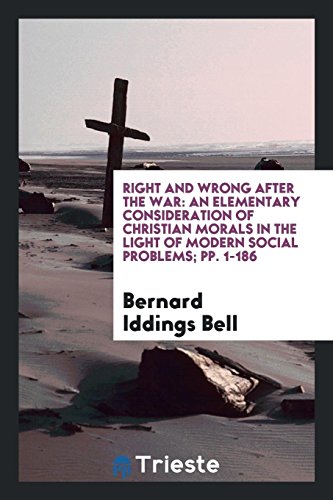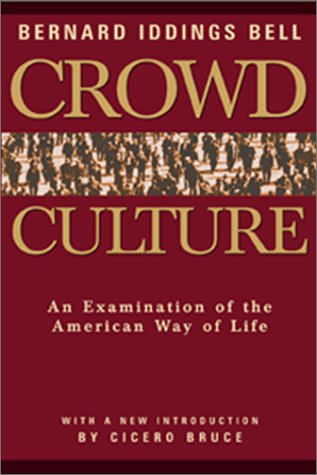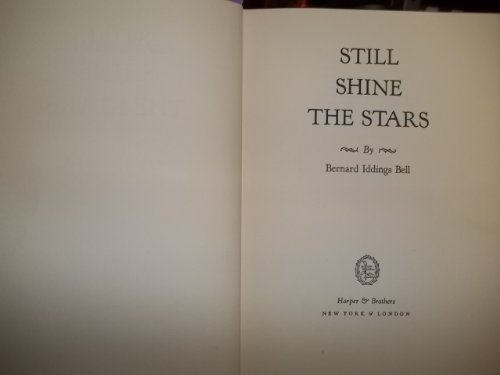Background
Bernard Bell was born on October 13, 1886, in Dayton, Ohio, the son of Charles Wright Bell, a paper manufacturer, and Vienna Valencia Iddings.



( About the Book Books about Christian Rituals and Worsh...)
About the Book Books about Christian Rituals and Worship discuss the liturgical practices, prayers, hymns, and ceremonies that were and continue to be practiced by various Catholic, Evangelical and Protestant denominations. Titles include: A Manual of Devotions for Domestic and Private Use, Baptismal obligations; or, The duties and responsibilities of God-parents and baptized persons, Being a Christian: What it Means and how to Begin, Devotions for Public and Private Use. At the Way of the Cross, Elevation in the Eucharist: Its History and Rationale, How to Obtain Fulness of Power in Christian Life and Service, Primary lessons in Christian living and healing, Spiritual Worship. A Lay Discourse, and What it Means to Be a Christian: The Evangelistic Message in Outline. About us Trieste Publishing’s aim is to provide readers with the highest quality reproductions of fiction and non-fiction literature that has stood the test of time. Our titles are produced from scans of the original books and as a result may sometimes have imperfections. To ensure a high-quality product we have: • thoroughly reviewed every page of all the books in the catalog • repaired some of the text in some cases, and • rejected titles that are not of the highest quality. You can look up “Trieste Publishing” in categories that interest you to find other titles in our large collection. Come home to the books that made a difference!
https://www.amazon.com/Right-Wrong-After-War-Consideration/dp/0649693728?SubscriptionId=AKIAJRRWTH346WSPOAFQ&tag=prabook-20&linkCode=sp1&camp=2025&creative=165953&creativeASIN=0649693728

(In Crowd Culture, a remarkably prescient work originally ...)
In Crowd Culture, a remarkably prescient work originally published in 1952 (before the words dumbing down had ever been uttered), Bell excoriated the complacent and conformist egalitarian ethos that he believed was undermining American education, religion, and culture. In an age of stultifying homogenization, Bell's relevance has never seemed greater.
https://www.amazon.com/Crowd-Culture-Examination-American-Life/dp/1882926609?SubscriptionId=AKIAJRRWTH346WSPOAFQ&tag=prabook-20&linkCode=sp1&camp=2025&creative=165953&creativeASIN=1882926609

(Condition notes listed for each individual item. For addi...)
Condition notes listed for each individual item. For additional item description, please contact seller directly.
https://www.amazon.com/Still-Shine-Stars-Bernard-Iddings/dp/B000B6TL6M?SubscriptionId=AKIAJRRWTH346WSPOAFQ&tag=prabook-20&linkCode=sp1&camp=2025&creative=165953&creativeASIN=B000B6TL6M

(This book is written with certitude of four things. First...)
This book is written with certitude of four things. First, that contemporary civilization is in such a desperate state as promises to us and to our children barring a revolutionary about-face in man's thinking and behavior little better in respect to our social arrangements than a continuous and more and more rapid disintegration into anarchy, and an increasing misery in the minds and hearts of individuals. Secondly, I am certain that the current decay is not due primarily to iniquity in politics, global or otherwise, nor to an outmoded economic structure. Thirdly, it seems plain to me that our only hope of avoiding debacle lies in a rediscovery by the common man, a rediscovery widespread and speedy, of design in the universe and more particularly of how he may fit into that design his life and the life of his children. Only so can he gain freedom from that worst of tyrants, the feeling that nothing matters. Fourthly, There is to be new hope and renewed joy for human beings, the realization of purpose which is prerequisite thereunto cannot be imparted to people generally in terms of metaphysics, which alas seems to most of them, even to many of them that are highly intelligent scarcely more than a precious playing around with abstractions, far removed from life's realities. These four certitudes, it need hardly be said, are not things which I myself thought up in my clever mind, nor were they revealed to me by immediate inspiration from on high.
https://www.amazon.com/Bernard-Iddings-Bells-Man-Live/dp/B00I86W51K?SubscriptionId=AKIAJRRWTH346WSPOAFQ&tag=prabook-20&linkCode=sp1&camp=2025&creative=165953&creativeASIN=B00I86W51K
Bernard Bell was born on October 13, 1886, in Dayton, Ohio, the son of Charles Wright Bell, a paper manufacturer, and Vienna Valencia Iddings.
Bell received the B. A. in 1907 from the University of Chicago and then enrolled at the Western Theological Seminary in Chicago (later part of Seabury-Western Seminary), graduating with a Bachelor of Sacred Theology degree in 1912.
In 1910 Bell became a deacon and priest of the Episcopal Church and vicar of St. Christopher's Church in Oak Park, Illinois. He was appointed dean of St. Paul's Cathedral Church in Fond du Lac, Wisconsin, in 1913. During his five years there, Bell served as the examining chaplain to the bishop and as senior aide to the chaplain at the Great Lakes Naval Training Station (1917 - 1919), and wrote two books, Right and Wrong After the War (1918) and The Church's Work for Men at War (1919). In 1919 Bell was appointed warden of St. Stephen's College (now Bard College) at Annandale-on-the-Hudson, New York. Over the next decade at St. Stephen's he developed and guided a rigorously classical liberal arts curriculum where a small faculty-student community examined the original Greek and Latin classics. When St. Stephen's became a branch of Columbia University in 1930, Bell received a three-year appointment as professor of religion in the department of philosophy at Columbia.
From 1933 to 1946 Bell was the preaching canon at St. John's Cathedral in Providence, Rhode Island, and also taught frequently at universities and colleges in the United States and England as visiting lecturer of religion. He returned to Chicago in 1946 as the honorary canon at the Cathedral of Sts. Peter and Paul and as an educational consultant to the Right Reverend Wallace E. Conkling, Protestant Episcopal bishop of Chicago. His duties involved chaplain service at the University of Chicago and other schools in the diocese. Bell also taught religious education and preaching from 1946 to January 1948 at Seabury-Western Theological Seminary in Evanston, Illinois. After resigning this position, he spent the last years of his life lecturing, preaching, and writing books, articles, and pamphlets. He was a frequent contributor to the Atlantic Monthly, Living Church, Criterion, and the New York Times Magazine. Bell's activities after 1955 were partially curtailed by blindness. He died in Chicago.
Bernard Bell was a well-known priest of the American Episcopal Church who served as dean of St. Paul's Cathedral, Fond du Lac, Wisconsin (1912-1919) and as warden of Bard College (1919-1933). He also achieved success and received praise from intellectuals for his works: Right and Wrong After the War (1918); The Church's Work for Men at War (1919); The Church in Disrepute (1943); Affirmations (1938); A Catholic Looks at His World (1936); Crowd Culture (1952), etc.
(In Crowd Culture, a remarkably prescient work originally ...)
( About the Book Books about Christian Rituals and Worsh...)
(This book is written with certitude of four things. First...)
(Condition notes listed for each individual item. For addi...)
Bell resolutely affirmed that faith "is not primarily a matter of philosophy, but of entrustment to a God who reveals Himself. " And to those propagators of a liberal Christianity determined to perfect men through collective governmental action, Bell responded that the crucial Christian message was to inform men that life involved uncertainty, insecurity, pain, and suffering. The Church should provide the courage to "live simply, honestly, bravely, joyfully in the midst of a difficult world. "
In his sermons and lectures Bell affirmed what seemed to him the very essence of Christianity: "the substance of things hoped for, the evidence of things not seen. " He believed that the life of the soul is nourished by an openness toward God and that the agonies of human existence, the periods of doubt and pain, guilt and despondency, contrition and repentance, abandonment and hope, the silent stirrings of love and grace, constituted an inexorable cycle.
Bell's profound disaffection with the governing ideas of the contemporary world-relativism in philosophy and social thought, secularism and materialism in daily living, and romanticism and naturalism in literature caused him to view education as the crucible through which the return to first principles could occur. His diagnosis and prescription for the improvement of society was the refurbishing of traditional classical education and the repudiation of John Dewey's educational views. Dewey, in Bell's estimate, had been completely captivated by Rousseau. His "essentially romantic and unrealistic" philosophy was so triumphant in the public schools that "our children are in consequence being trained in a notion of man's nature so untrue as to make our temper hysterical and our culture increasingly fragile. " Since Dewey and his disciples had been responsible for supplanting traditional normative values with a subversive secularism, their intellectual and institutional hegemony had to be challenged. "The religion of the publicschools, " he wrote, "is a nontheistic and merely patriotic Secularism. The public schools, without its being generally perceived by those who direct the schools, have become, because of this monopoly advocacy, the most dangerous opponents of religious liberty on the American horizon. " Bell's solution to the crisis in American education was to admit first that our "exaggerated optimism about man" was "the chief cause of our decay" and then to cultivate "a democratic elite" that will exemplify excellence and "a more urbane and humane way of living. " To think that the average person "can be entrusted without skilled critical leadership to run himself and society" was to create a "crowd culture" that celebrated mediocrity, contemporaneity, and triviality.
Quotations:
"Most modern Utopias, all the way from those of the capitalistic individualist to those of Marx, Lenin, Hitler and Mussolini are based on Rousseau's presuppositions about man. "
"Over against Liberalism, whose god is me, and equally opposed to Communism, whose god is us stands Christianity and should be standing Christ's Church, to bid men to live and labor for the glory of that God who has revealed Himself. "
"The two things I like best to do are to say Mass and to preach. "
Bernard Bell was a member of The Episcopal Church.
On April 24, 1912, Bell married Elizabeth Wood Lee. They had one child.
